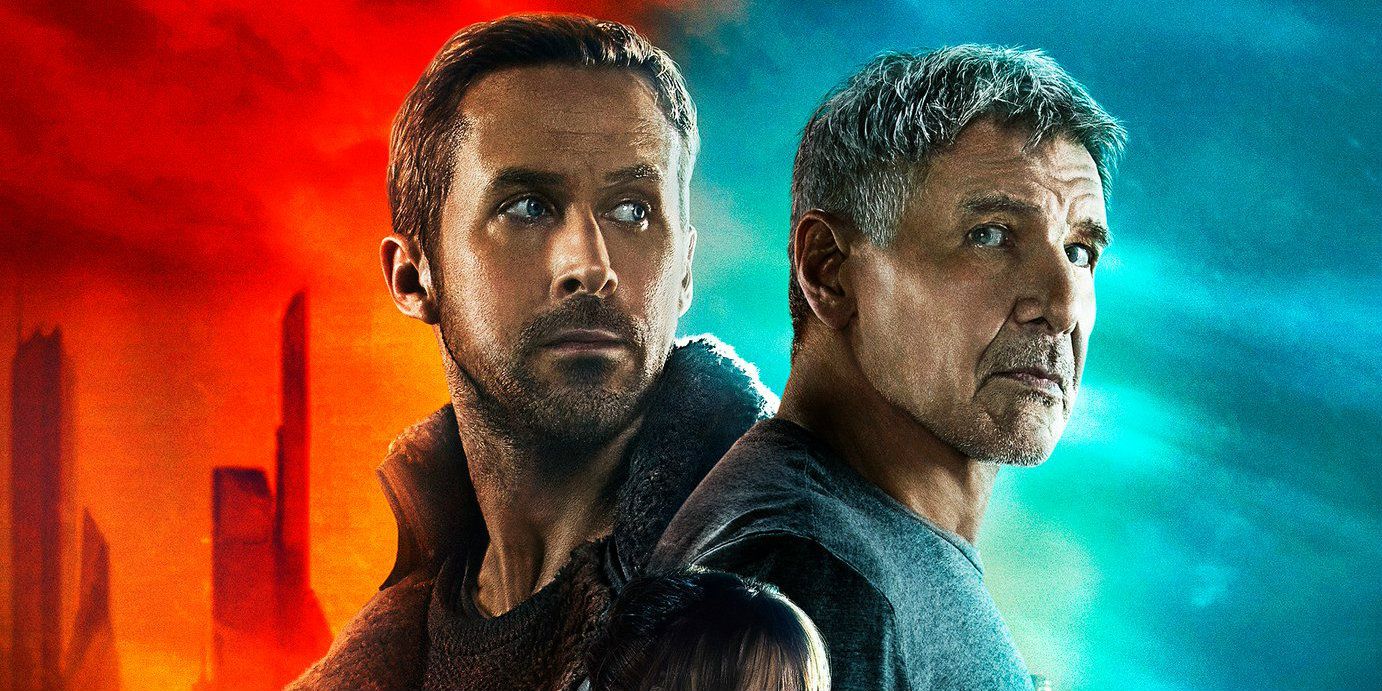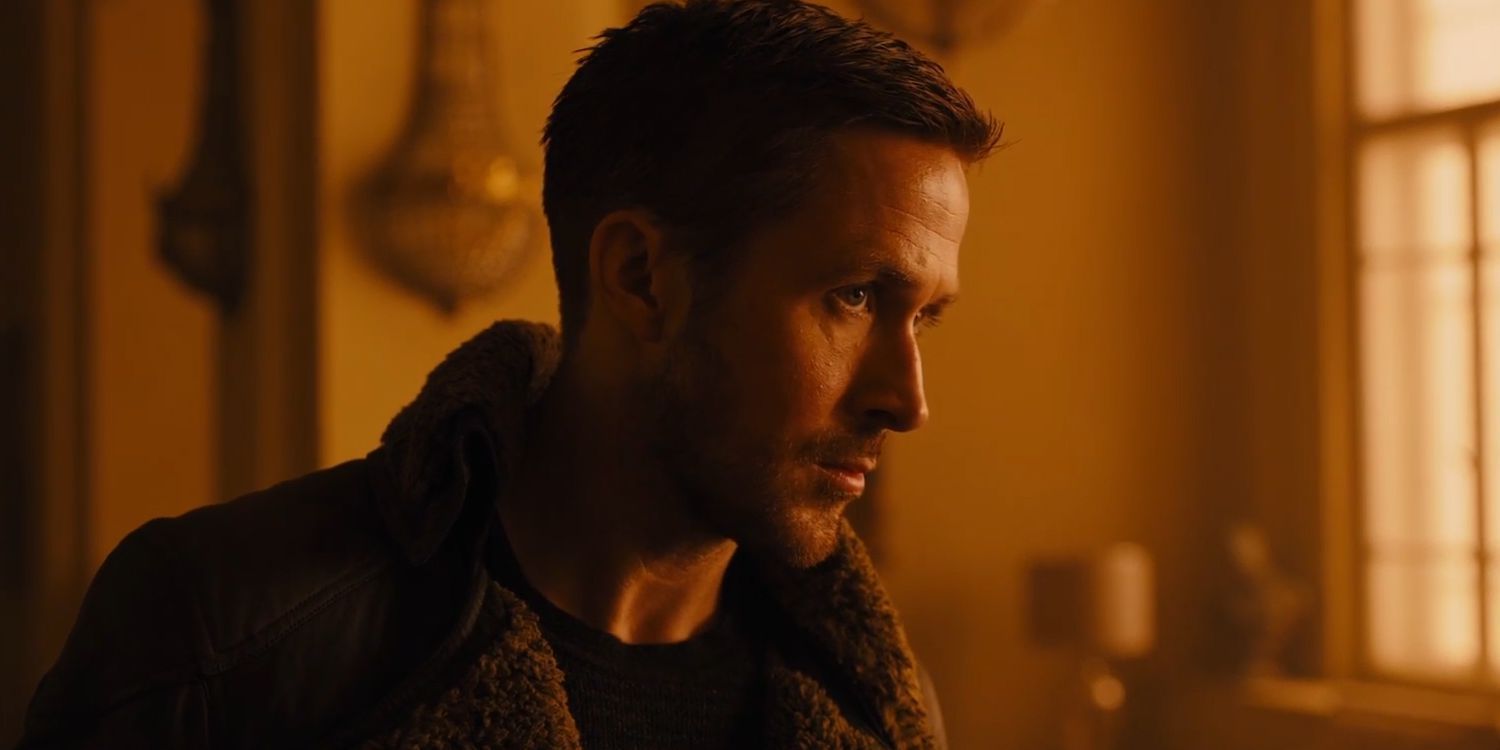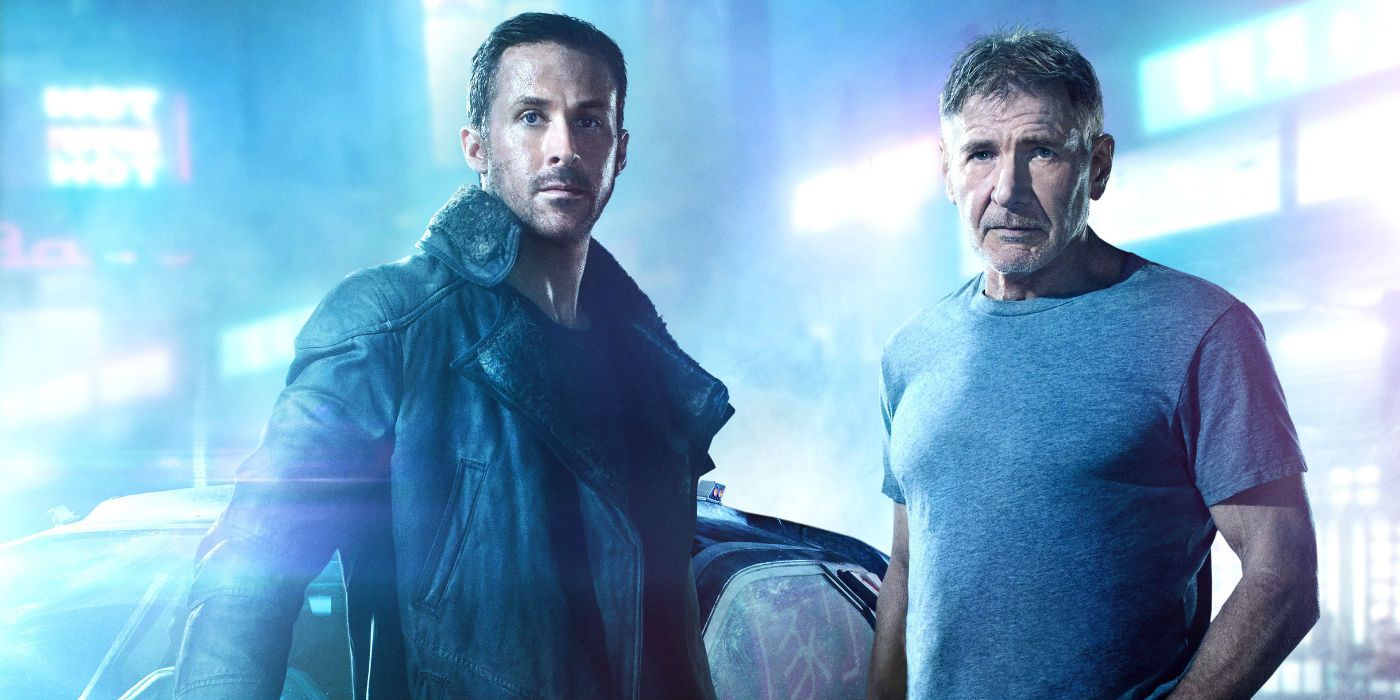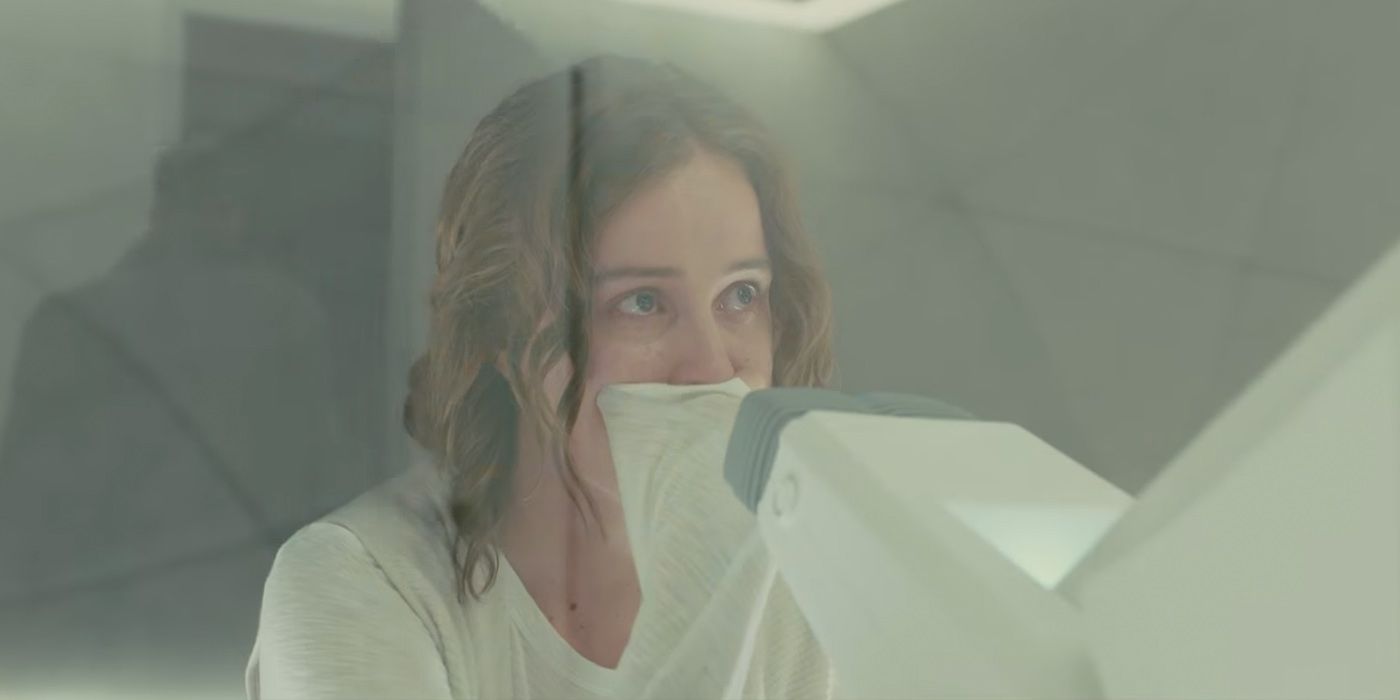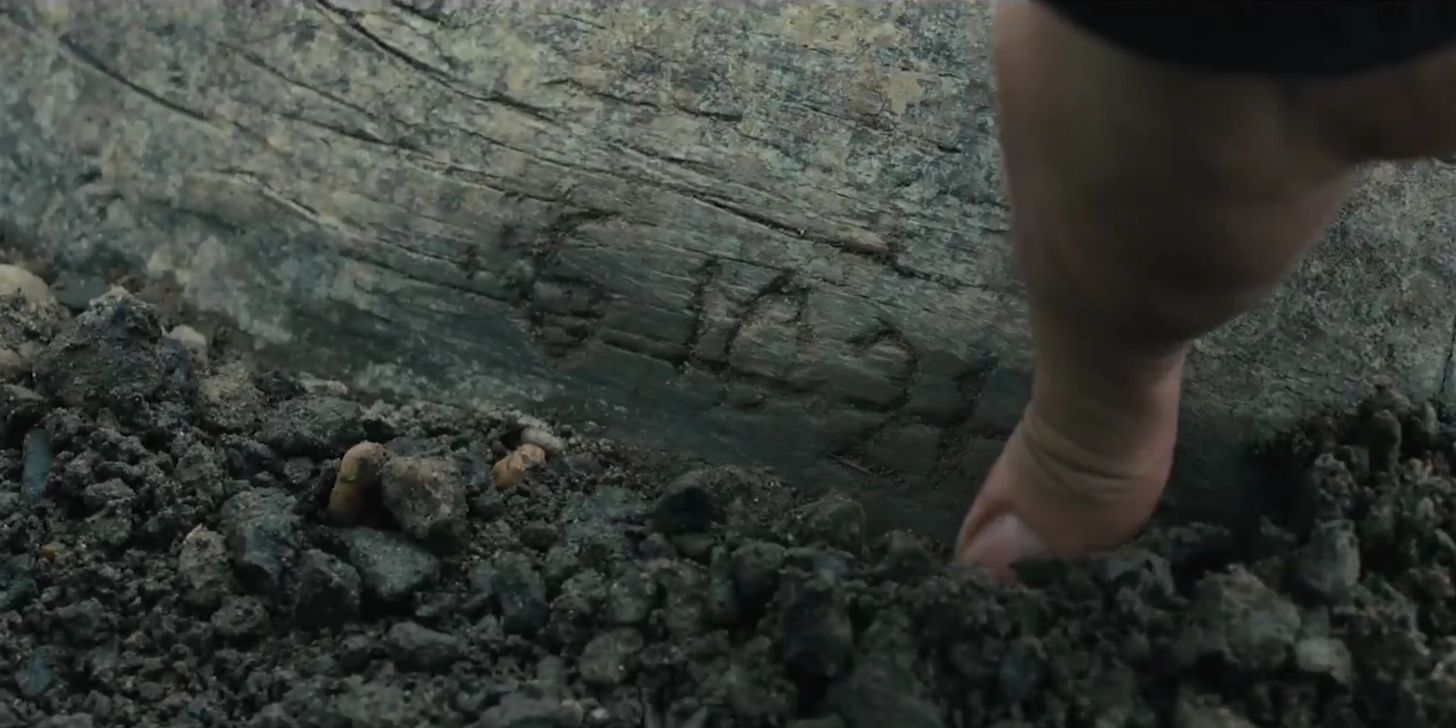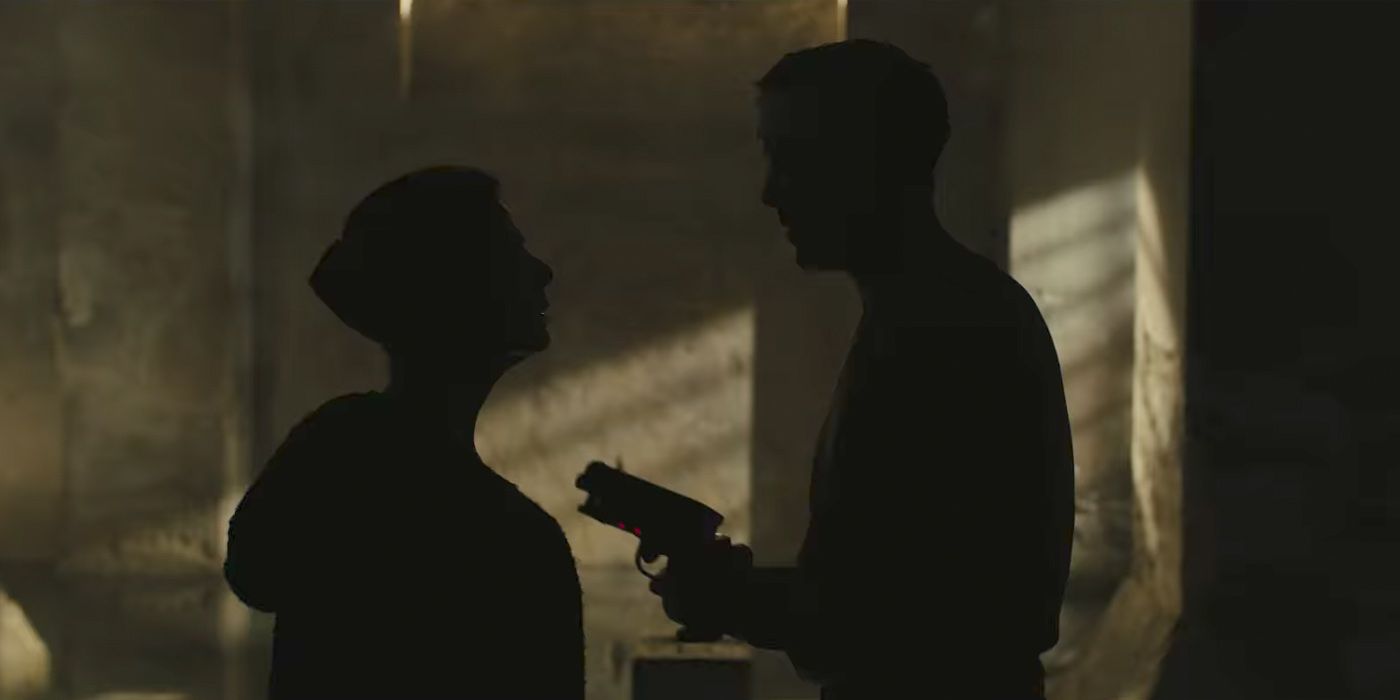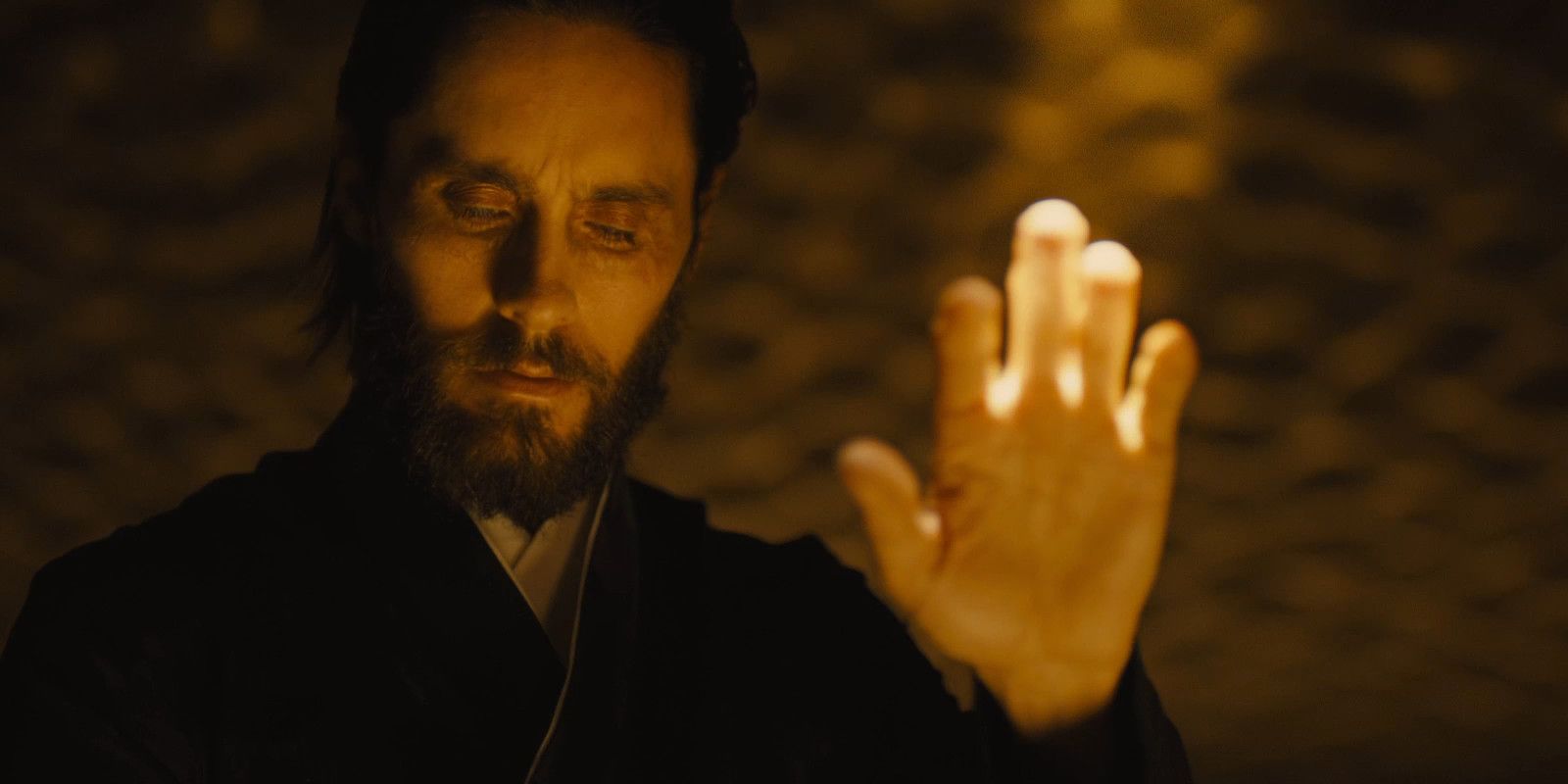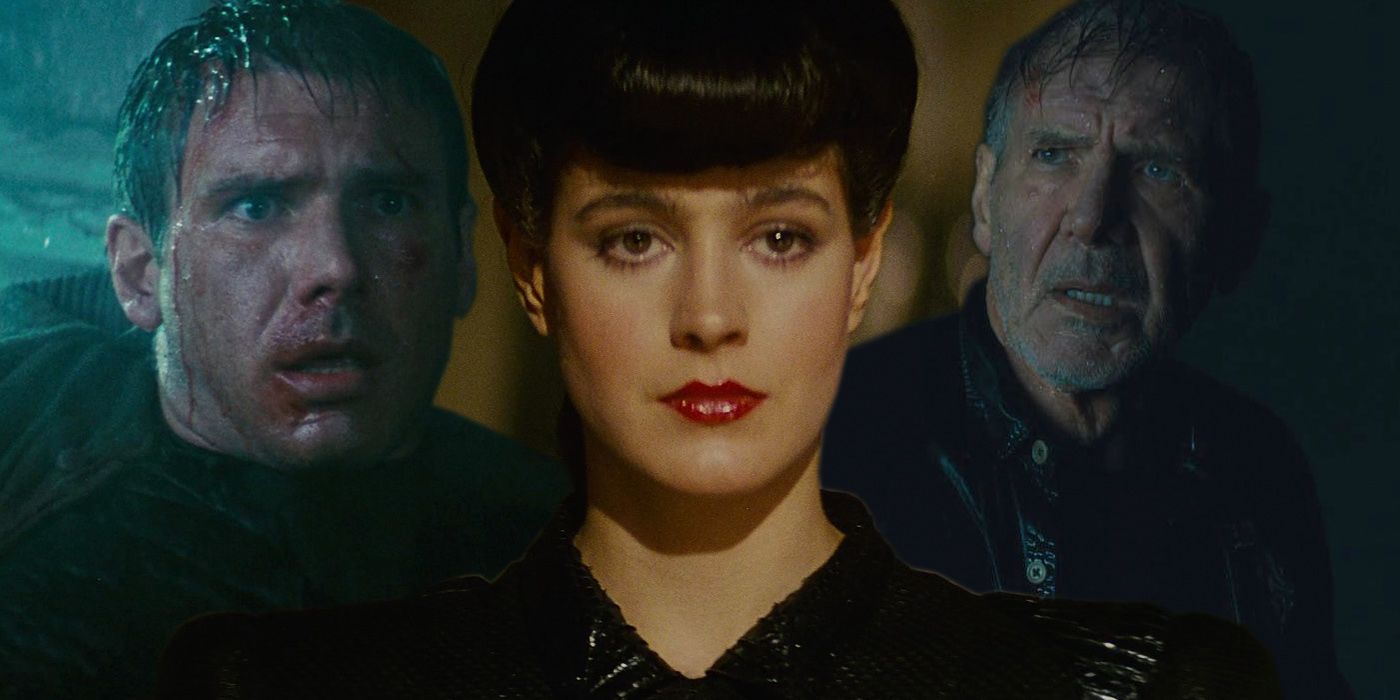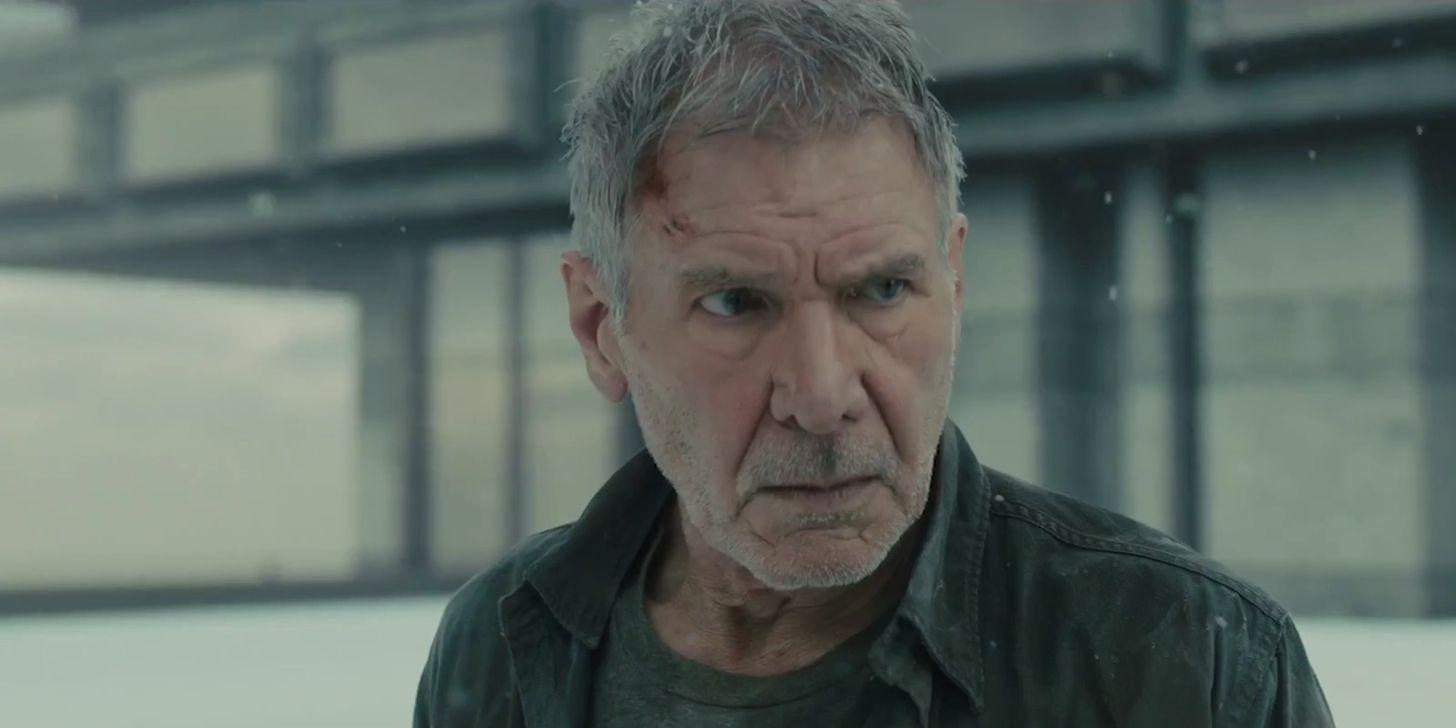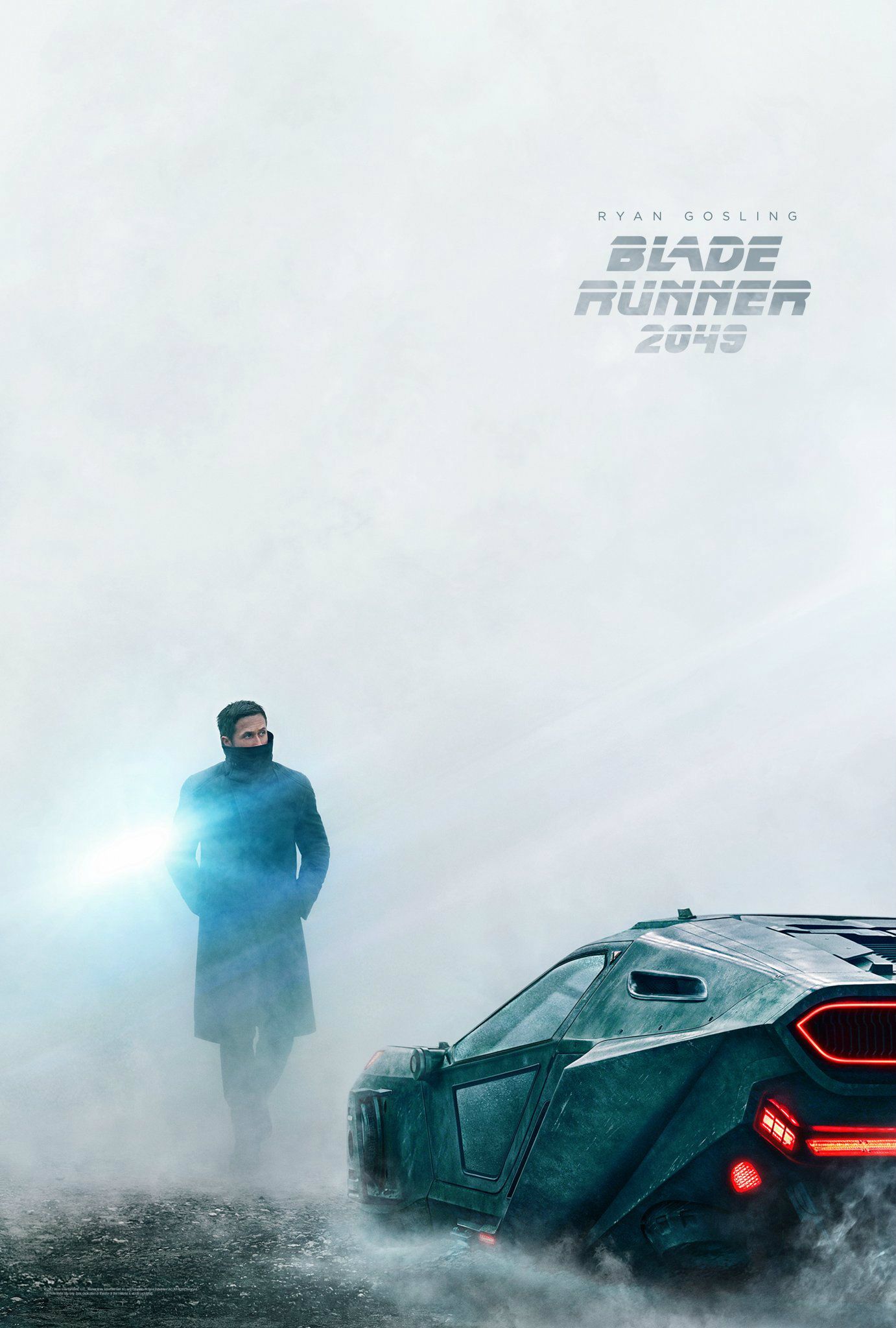After a two hour and forty-five-minute odyssey, Blade Runner 2049 left the most pressing question unanswered: Is Deckard a replicant? Much like its predecessor, 2049 played ostrich about the elephant in the room regarding the retired blade runner's species. But while the movie may have deflected the collective interest in Deckard, it still managed to throw haymakers full of twists and spoilers to make up for it.
In the weeks leading up to the release of Denis Villeneuve's sequel to the Ridley Scott classic sci-fi, early viewers urged audiences to avoid marketing materials like the plague. The fact that Ryan Gosling's "K" is a replicant (which was a topic of speculation among fans, leading up to the release) was announced within a few minutes of the movie's opening scene. From there, the spoilers only got more serpentine.
Here are the biggest twists, turns, reveals and spoilers from Blade Runner 2049.
œK Is A Replicant
Perhaps this tidbit was chief among the spoilers that early-viewers encouraged audiences to avoid. For the many fans who anticipated Officer K (Ryan Gosling) would be a replicant blade runner, they earned their answer in the movie's opening scene. After the brutal hand-to-hand combat that saw Sapper Morton (Dave Bautista) struggling to breathe, the defeated replicant asked K what it's like to "kill your own kind."
If this hint of unity weren't enough, Officer K proved his synthetic nature as he returned rapid-fire questions in the interrogation room without batting an eye. His emotional and logical "baseline" confidently achieved, K earned another day on the blade runner taskforce.
K is Not Deckard and Rachael's Son
Borrowing from Pinocchio, Star Wars, and even the Old Testament, Blade Runner 2049 seemed eager to establish the genetic lineage from Deckard to Officer K. The replicant hunter of 2049 displayed a subtle independence in the film's opening frame, and even his digital girlfriend found him to be "special." His "Madame" Lieutenant Joshi (Robin Wright) found him to be particularly interesting, as did the ladies of the night in Los Angeles County.
Blade Runner 2049 made its case early and often: Officer K is different. When his suspicions aligned with what seemed to be hard-won evidence, K began a journey of identity. From finding a serial number on Rachael's bones and recognizing the date carved on Sapper's tree, to retrieving a toy horse that he had owned in a supposedly artificial memory, and eventually meeting up with Deckard, Officer K went on a mission not just for answers, but to track down his presumed father.
Though K learns the hard way that he's just another replicant born of machines and not men, his final scene says it all. No words are needed, just a simple smirk: K will always think of Deckard as a father figure.
The Memory Maker is Deckard and Rachael's Child
Sneaking into the middle of the movie, Deckard's daughter quietly made her first appearance. Immersed in her memory-making expertise, she seemed to be little else than a visionary scientist. As time would tell, of course, the hints planted about her enigmatic history would bloom into the big reveal that she was the daughter of Deckard and Rachael. Like Moses escaping certain death by being raised in the family of his archenemy, the Pharaoh, "Stelline" (Carla Juri) carried out her job in close proximity to Niander Wallace (Jared Leto) and Luv (Sylvia Hoeks) without ever encountering the true danger that sought to find her.
For the Sherlock Holmes in the audience, the first major hint at her true identity was raised when she cried at the sight of K's childhood memory, which was actually her own. Though at first glance she seemed to offer tremendous empathy, she exhibited something far more troubling: recollection.
Related: How 2049 Changes The Original Blade Runner
K's Wooden Horse Memory Belongs To Stelline
K's childhood memory is real. He envisions it, he dreams about it, and he even tells his flirty LAPD boss about it. Then, against all odds, he finds himself in the impossible situation where he returns to the scene where it all began. In the metallic bowels of the orphanage, K walks amid the abandoned furnaces and rickety catwalks to find the wooden horse that he remembered hiding all those years ago. When he finally clutched the toy in his hand, his worst fears and most unspeakable dreams were realized all at once.
While succumbing to his emotional instincts (and skyrocketing above his interrogation baseline), he refused to accept this truth on faith alone. In seeking out the memory-maker, he put his memory to the test and learned that it was most certainly real. Though he shrieked in horror, we later learn that his reaction was an impetuous rush to judgment.
Though the memory is real (and his experiences equally so), Stelline is the one who lived it. Though drawing from real experience in memory-making is forbidden (i.e. Inception), Stelline breaks the rule, and in so doing lays the breadcrumbs that ultimately allow Deckard to find her.
The Resistance is Real
Considering the mysterious Black Out had limited (but powerful) effects, the replicant resistance in Blade Runner 2049 seeks a more lasting coup d'état. Led by Freysa (Hiam Abbass), this band of vigilantes has long played a role in freeing the dystopian society from the slave-dependent culture that built it. Though working as a single entity, they are individualists at heart. Desperate to achieve and protect their people's freedom, they are motivated by the rumored existence of Rachael's daughter, who to them represents a savior. While longing to be in her presence, the resistance also seeks to bring down Wallace and his cruel conglomerate.
Through Officer K, we encounter the eviscerating truth that faced Fresya and each of her followers at one point in their lives. Despite their most fervent confidence, they are not Deckard's sons or daughters. They are replicants cursed with an understanding of the human experience but denied their right to enjoy it. As K slowly learns to accept this truth, he also learns to accept his life's mission and fate.
Wallace Questions Deckard's Humanity
Niander Wallace is a megalomaniac, but he's also a major monologist. In lieu of his apparently-absent eyesight, he speaks like a Greek philosopher at cocktail hour. Considering himself the god of his people, he does what he likes with each of his synthetic offspring. When he isn't wantonly slicing open his replicant children, he enjoys penetrating the vulnerable minds of men like Deckard.
Launching into yet another screed on the nature of existence and fate, Wallace strongly implies that Deckard was designed for a specific purpose: to meet Rachael, to impregnate her, and to forever change the natural order of replicant events. As a look of horror washes over Deckard's face, Wallace wobbles on his wordplay: "if you were designed." As with whether Han Solo or Greedo shot first, the mystery over Deckard's humanity will exist for time immemorial.
Deckard Rejects Rachael 2.0
"Her eyes were green." If ever a man so convincingly spat in the face of a god, it's hard to top Deckard's diss at Wallace. Though the titan of replicant industry has every material good at his disposal, he stills covets what Deckard brought into existence. In longing to find the famed replicant child, he appeals to Deckard's most human desires. By resurrecting the (nearly) exact form of his old lover, Rachael, Wallace tempts Deckard to touch the flame.
Though he gazes into her eyes and recalls their relationship, Deckard finds a glitch in the design; her eyes were green, not brown. As the erstwhile blade runner turns from the Rachael impostor, Wallace bristles with umbrage and orders Luv to execute the replicant on the spot.
Deckard Reunites With Stelline
Though Blade Runner 2049 left many unanswered questions on the table, it gave full closure to Deckard's journey to meet his daughter. Thanks to K's selfless sacrifice, Deckard finally gets a minute alone with his long-lost daughter. Busy making snow-set memories, Stelline tells her visitor to wait just a moment.
As he is wont to do, Deckard remains silent and approaches the glass barrier that separates him from his daughter. Without saying a word, he approaches the enclosure, places his hand on the glass, and smiles. Deckard is finally reunited with his family.

